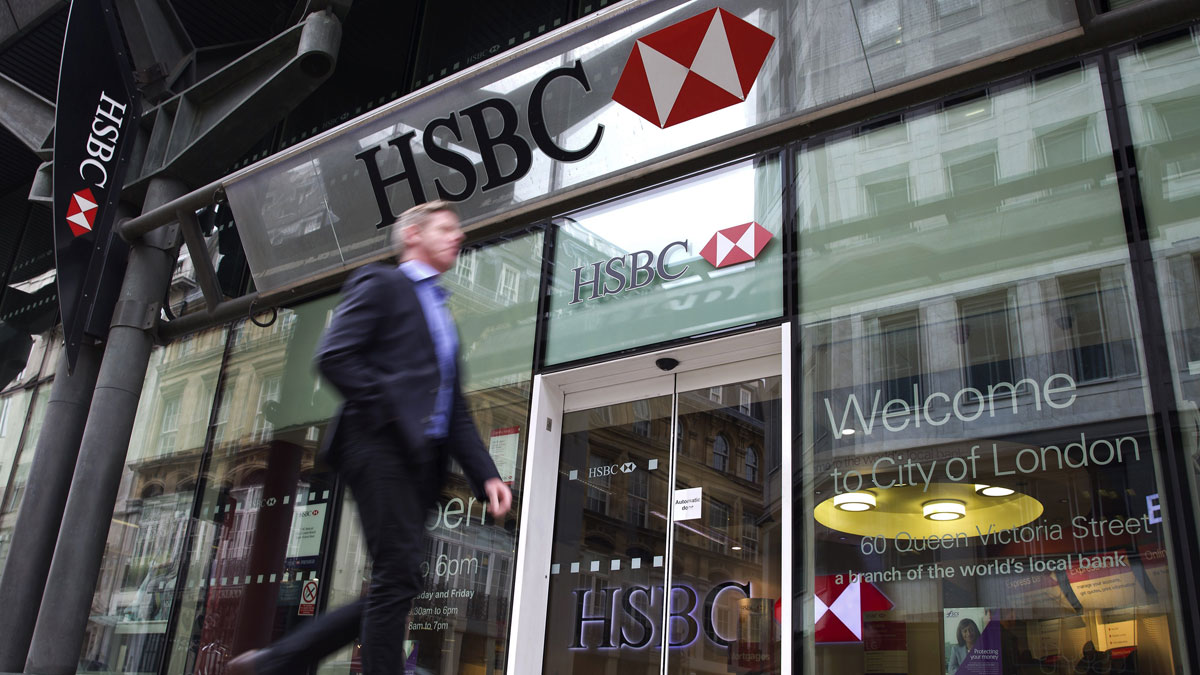The best non-Isa savings options
Isas are a great long-term savings tool, but they often don't offer the best rates.

A free daily email with the biggest news stories of the day – and the best features from TheWeek.com
You are now subscribed
Your newsletter sign-up was successful
Since their arrival in 1999 Isas have taken over the savings landscape. The promise of tax-free growth has lured us all in.
But many banks don’t offer their best interest rates on Isas. For example, the best cash Isa rate available at the moment is 2.55 per cent for a five-year bond with UBL. Look at non-Isa bank accounts and it is possible to earn 5 per cent before tax.
Should I ditch ISAs?
The Week
Escape your echo chamber. Get the facts behind the news, plus analysis from multiple perspectives.

Sign up for The Week's Free Newsletters
From our morning news briefing to a weekly Good News Newsletter, get the best of The Week delivered directly to your inbox.
From our morning news briefing to a weekly Good News Newsletter, get the best of The Week delivered directly to your inbox.
Isas have an important role to play in tax paying. Remember, money held in an Isa can grow free from income and capital gains tax for as long as it stays in the wrapper.
After 16 years of Isa savings that means there are a fair few people out there with hundreds of thousands of pounds shielded from the tax man. Taking a marginally lower interest rate could be worthwhile when you look at it like that.
When should I consider non-ISA alternatives?
Obviously you should look for alternatives once you've maxed out your Isa allowance in a given tax year. This year that's £15,240.
A free daily email with the biggest news stories of the day – and the best features from TheWeek.com
But if you are looking for a home for your emergency savings to which you need instant access then the long-term tax benefits of Isas become less appealing in the first place, as you aren’t looking to build up a large nest egg.
The best instant-access Isa rate out there is 1.55 per cent from the West Bromich Building Society. But if you put your emergency pot in a current account with TSB you could earn 5 per cent interest, although you would have to fund the account with £500 a month and not let your balance grow above £2,000.
You should therefore think twice about using an Isa if you aren’t looking to shield huge sums from the taxman. From April 2016 basic-rate taxpayers will be able to earn up to £1,000 a year in interest before they have to pay income tax on it, giving most of the benefits of an Isa. Higher rate taxpayers will be able to earn £500 a year.
This means, from April, a basic rate taxpayer earning three per cent interest would need to have more than £33,000 in the bank before they pay income tax. A higher rate taxpayer could save £16,500 at 3 per cent without incurring income tax.
The best buy non-ISA accounts pay 3.15 per cent over five years (AgriBank) and 2.88 per cent (Al Rayan Bank) over three years.
How can I earn 5% interest on my savings?
Anyone prepared to put in the leg work can earn up to five per cent interest on thousands of pounds of savings if you make the most of the great interest rates offered on some current accounts.
The highest rate of five per cent is available on TSB’s Classic Plus account on balances up to £2,000 and Nationwide’s FlexDirect account on balances up to £2,500. If you have more money that needs a home then Lloyds Bank’s Club Lloyds account pays four per cent interest on balances between £4,000 and £5,000 and Santander’s 123 Current Account pays three per cent interest on balances of £3,000 to £20,000.
That adds up to potentially £30,500 earning market-beating interest rates in instant-access accounts. With a grand total of £965 interest after fees, from April that would be income-tax free for a basic-rate taxpayer.
The off-putting thing with these current account interest rates is that you need to fund each account with a certain amount of money each month to get the interest rate. But there is a simple way around this if you have a reasonable amount of savings. You just need to open more then one of the accounts mentioned above and set up direct debits to bounce the minimum funding amount between the accounts.
So, if you opened the TSB account and the Nationwide account you would set up two direct debits one from each account going to the other for £1,000 (the minimum funding level for the Nationwide account).
A word of warning with the Santander account. At present it has a £2 monthly fee but that is rising to a hefty £5 a month from 11 January. Make sure you do your sums to be certain it still offers you the best rate of return.
-
 Film reviews: ‘Send Help’ and ‘Private Life’
Film reviews: ‘Send Help’ and ‘Private Life’Feature An office doormat is stranded alone with her awful boss and a frazzled therapist turns amateur murder investigator
-
 Movies to watch in February
Movies to watch in Februarythe week recommends Time travelers, multiverse hoppers and an Iraqi parable highlight this month’s offerings during the depths of winter
-
 ICE’s facial scanning is the tip of the surveillance iceberg
ICE’s facial scanning is the tip of the surveillance icebergIN THE SPOTLIGHT Federal troops are increasingly turning to high-tech tracking tools that push the boundaries of personal privacy
-
 Six actions to protect your finances before the Autumn Budget
Six actions to protect your finances before the Autumn BudgetIn Depth Reforms to property taxes, pensions and inheritance tax may be on the agenda for the 2025 Autumn Budget. Here is how you can prepare
-
 Four key tax changes to prepare for in April
Four key tax changes to prepare for in AprilThe Explainer With time running out, a last-minute checklist could help you make the most of your allowances
-
 Which savings accounts pay the worst rates?
Which savings accounts pay the worst rates?In Depth Banks will have to implement seven-day switching and notify customers of rate changes
-
 Innovative Finance Isas: what you need to know about IFIs
Innovative Finance Isas: what you need to know about IFIsIn Depth New IFI Isas will let you shield savings held in peer-to-peer lending accounts from income tax
-
 'Workplace' Isa vs Pensions: how best to encourage saving?
'Workplace' Isa vs Pensions: how best to encourage saving?Speed Read New pensions minister seems to have supported merging of Isas and pensions before taking government job
-
 Isa interest rates: don't get caught out by falling returns
Isa interest rates: don't get caught out by falling returnsIn Depth Since the announcement of Super Isas in the budget, interest rates have been anything but inspiring
-
 New Isas: what are they and how do they work?
New Isas: what are they and how do they work?In Depth Isas have now been replaced by Nisas, meaning new rules for the tax-free savings accounts